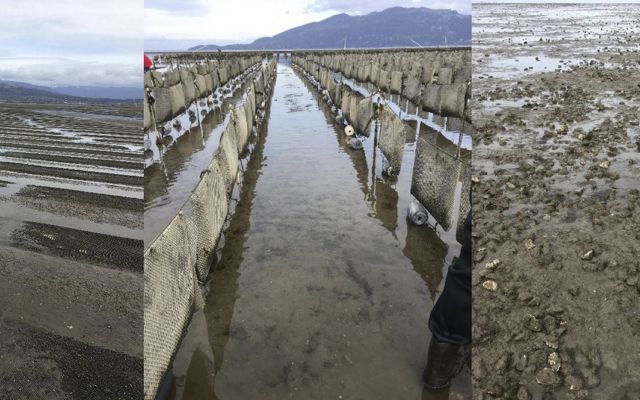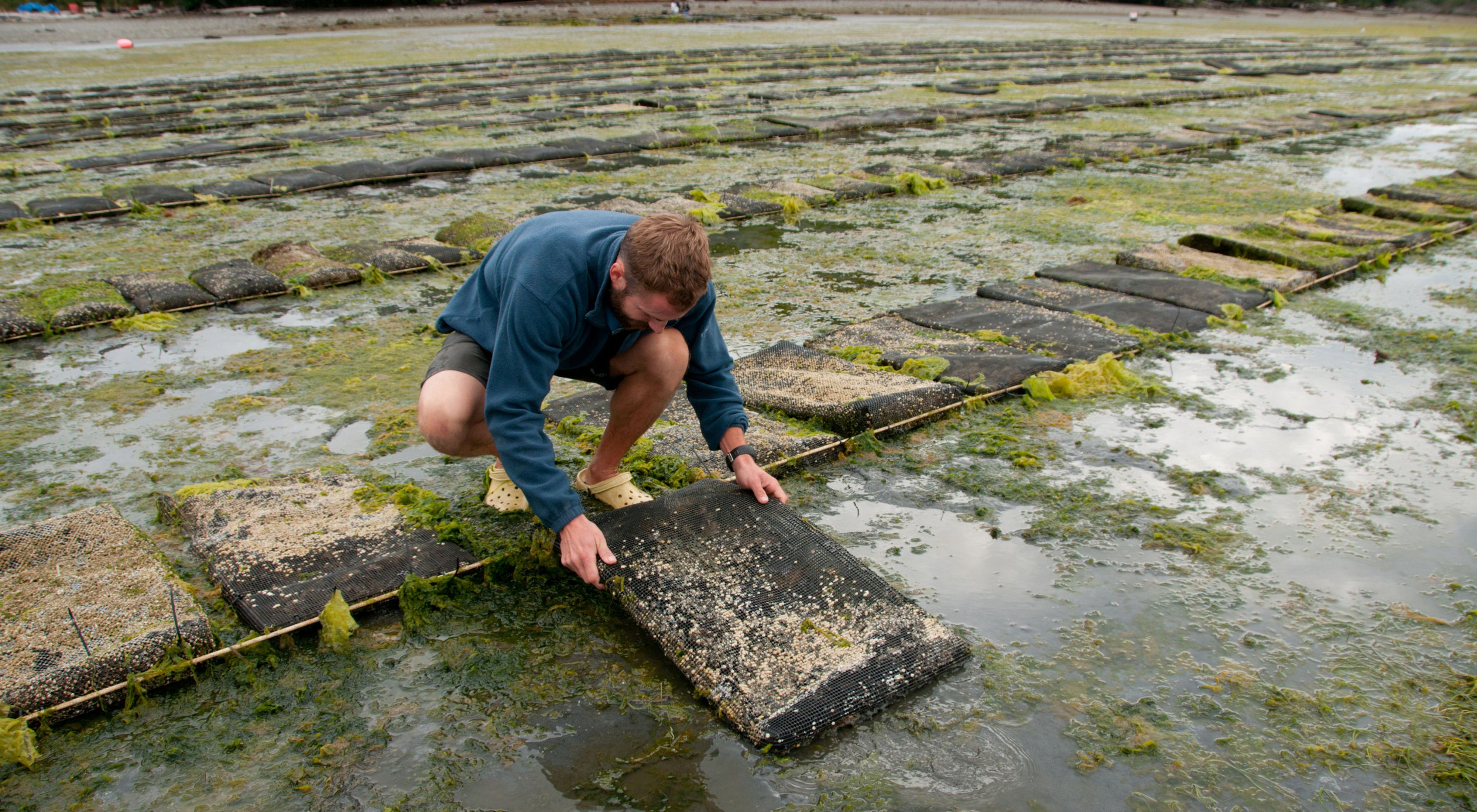Shellfish Aquaculture Affects Marine Life
By Katrina Radach, Washington Sea Grant Marine Policy Fellow
In Washington state, shellfish aquaculture is an important piece of our heritage and culture, contributing $270 million to the annual economy and 2,700 local jobs, not to mention unparalleled protein for markets near and far. Shellfish also provide important ecosystem services, filtering water to improve water quality and providing structure for marine organisms.
In Puget Sound, we want to learn more about shellfish aquaculture structures and how they impact the marine environment for specific organisms or life stages. We partner with the National Oceanographic and Atmospheric Administration (NOAA) and Washington Sea Grant, as well as the Jamestown S’Klallam Tribe and shellfish farms, to study which fish and crab species use shellfish aquaculture habitats. We’re revealing these important interactions with underwater cameras.

There are many ways to grow shellfish, but for this study, the team focused on studying oyster flip bags, oyster on-bottom culture and clam beds.
The team also placed underwater cameras at natural habitats nearby (such as eelgrass beds and sediment mudflats) for comparison.
The GoPro cameras were placed on the tide flats at low tide and programmed to record during high tide.
STUDY DESIGN
The team placed underwater cameras at 10 sites around Puget Sound study the interactions between marine organisms and shellfish aquaculture structures.
PRELIMINARY RESULTS
The partners captured more than 1,200 hours of underwater video, and highlights are compiled below. In the footage, you’ll see a spiny dogfish, harbor seals, crabs, mating perches, flatfish and more!
Perhaps one of the most exciting parts of this project was the collaboration between tribal and non-tribal shellfish farms, TNC, Washington Sea Grant, and NOAA. Shellfish aquaculture companies offered access to their farms and participated in camera deployment. Shellfish companies and the Jamestown S’Klallam tribe also participated in workshops to discuss the benefits and challenges of collaborative research.
One of the most overwhelming challenges discussed is the aspect of having available capacity and time to coordinate and collaborate. But, when participants discussed the benefits, we received a wide range of responses. Some of the responses include new insights on how aquaculture interacts and impacts ecosystem, figuring out permits, sharing data, and many more!
This partnership allowed shellfish farmers, who make ecological observations on their farms every day, to connect with scientists who have the time and funding to conduct research. Scientists are then able to directly answer questions and provide technical advice that are relevant to farmers. Understanding how shellfish farms interact with the environment is critical for sustainable growth of the industry and minimizing impacts.
By working collaboratively, the team hopes that industry, managers, NGOs, and the public will have a better understanding of how shellfish aquaculture structures function in the marine environment of Puget Sound.
Quote: Shina Wysocki
“I think it is really important and exciting when industry, NGO’s, and science works together. We are supposed to work together. These kind of cooperative efforts are what we really love about being shellfish farmers.”

